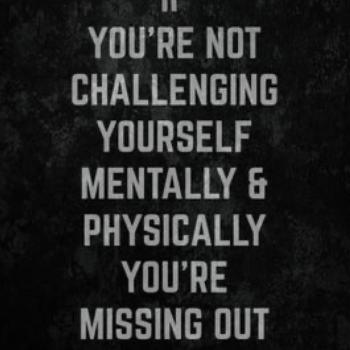The second of the questions about moral decision-making, then, is in what ways am I considering myself Christian, while I am actually living according to "the way and spirit of the world"? For us as Americans, that might include questioning our cultural passions for freedom, self-reliance, acquisition, and privacy—or recognizing our difficulty in separating our love of country from our love of God.
True holiness comes from placing God first—and not mistaking faith for patriotism.
The third touchstone was also from Augustine, although we can find it in many spiritual traditions, and it has to do with living with disagreement. When earlier this year the president of Georgetown University, Jack DeGioia, weighed in on the controversy over the Obama administration's plan to have the insurers of religious institutions offer birth control to female employees, he surprised and offended many by calling for civility and by quoting Augustine: "St. Augustine captured the sense of what is required in civil discourse: 'Let us, on both sides, lay aside all arrogance. Let us not, on either side, claim that we have already discovered the truth. Let us seek it together as something which is known to neither of us. For then only may we seek it, lovingly and tranquilly, if there be no bold presumption that it is already discovered and possessed.'"
Didn't almost all the speakers at both conventions act as though the truth is already discovered and possessed? Yet Augustine predated Descartes' proof of his existence ("I think, therefore I am") by reasoning outward from our inability to know the whole truth: "If I err, I exist" (City of God 11:26). This most renowned of theologians even characterized all human talk about God as "learned ignorance" (Letter 130).
Unlike most of us, Augustine saw the prevalence of error and ignorance as an opportunity for dialogue, not as an opportunity to demonize. It was possible, he said, that he might be wrong or might have only a portion of the truth, and therefore it was wrong for him to completely reject someone who believed differently. Even his enemies might teach him something.
So this final touchstone for theological decision-making asks us, is it at all possible that, as imperfect human beings, we don't hold the entire truth? And if none of us is willing to concede that possibility, can any meaningful change, compromise, or learning take place? Can candidates go to office having sworn not to raise taxes, let's say, or pledging that they will not compromise with those across the aisle?
Can candidates effectively govern after telling the American people that the ideas of their opponents are completely wrong—or worse, that their opponents are un-American, unchristian, or otherwise unworthy?
So, after the conventions in Tampa and Charlotte, after the heated rhetoric and impassioned attacks, I return to my theological touchstones: love, holiness, humility. The issues come and go, but the need for these remains.
Augustine was writing about the Bible in the passage that follows, but we might today imagine him speaking of American candidates sifting our foundational documents and coming to different conclusions: "May all of us who, as I allow, affirm that these texts contain various truths, show love to one another, and equally may we love you, our God, fount of truth—if truth is what we are thirsting after and not vanity" (Confessions 12.30.41).
Too often, I fear, when we come to different conclusions, we would rather be right—or imagine ourselves right—than anything else.
We would rather live secure in our ideological gated community than live with love.
Than live with forgiveness.
Than live—God forbid—with doubt.
And all of that sounds to me, I am sorry to say, like vanity.





